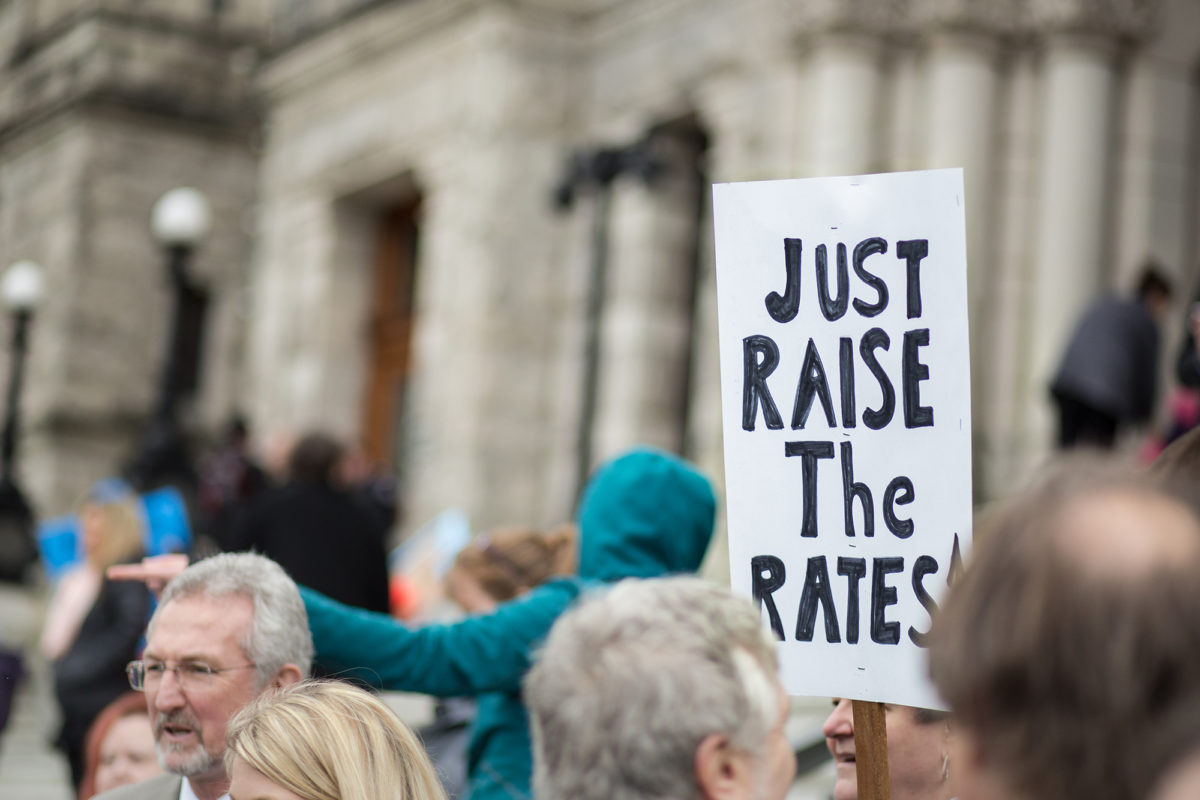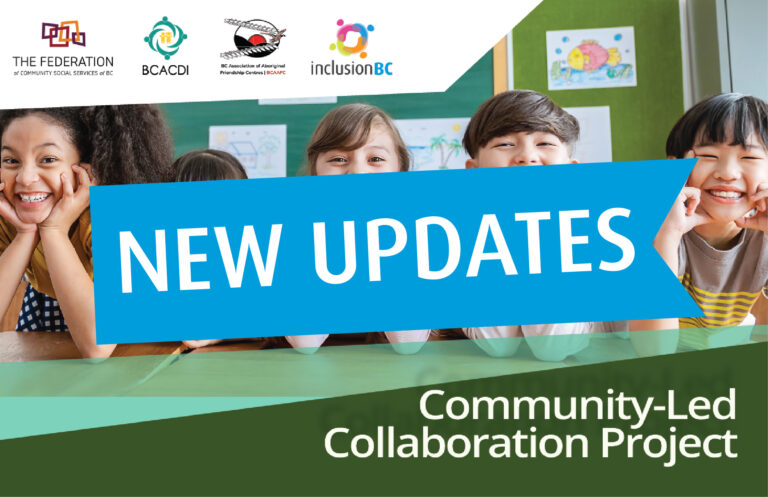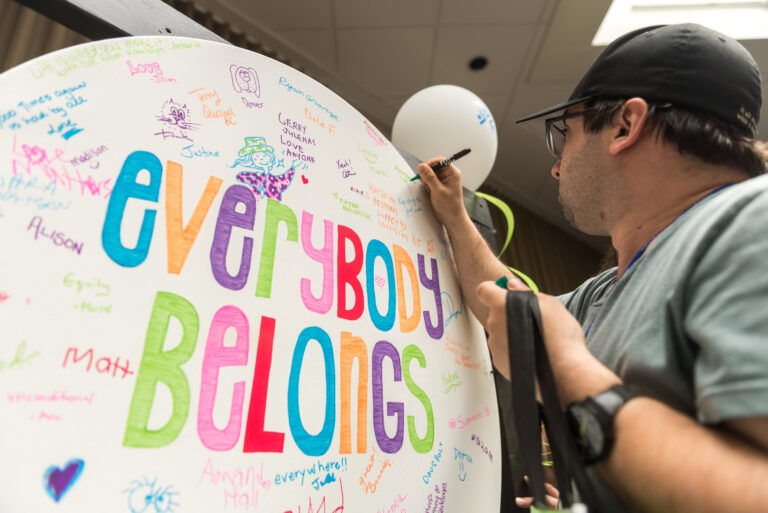
BC’s 2019/20 budget included many important investments to help lift people out of poverty. Unfortunately, the budget failed to meaningfully address low benefit rates that are keeping people with disabilities living in poverty.
This post expands on our news release from Budget Day, providing more detail and context.
PWD BENEFITS
The Minister of Finance announced a small increase of $50/month (effective April 1, 2019) to Persons with Disabilities (PWD) benefit rates. Inclusion BC is disappointed that this budget does not include the investments necessary to make the Poverty Reduction Strategy Act a success. Bringing people with disabilities out of poverty requires a significant investment to increase disability benefit rates to at least $1500 per month and index rates to the cost of living. We don’t see that investment in this budget.
Shelter rate
The budget announced improvements to disability assistance program, including extending the shelter rate for those paying room and board to a family member.
COMMUNITY LIVING BC
Inclusion BC is concerned about the budget for Community Living BC, where again there is a very modest annual increase of 66 million.
This investment slightly exceeds the increase in demand for services. The budget increase is approximately 7% and demand projections for services are estimated to be 5.2% plus approximately 100 people currently waiting 6 months or more for services. These individuals already have a PRT (priority ranking tool) score of 50 or more. It is CLBC policy to provide services within six months for individuals with a PRT over 50.
News release quote: “It remains unclear how this budget will actually translate directly into supports for people with intellectual disabilities and their families who are waiting for services,” says Verschoor. “Families and community agencies that support people with intellectual disabilities across BC have struggled with inadequate funding for a long time. Individuals and families continue to be told there’s not enough money in the CLBC budget for the services they need and face increasingly limited support options.”
Home share Rates
Inclusion BC was pleased to see a long-overdue rate increase for shared living providers. The rate increase will come into effect April 1st, 2019.
This increase will help address the challenges that many agencies have faced in finding shared living providers in their community. The province announced $45 million over three years for home-share providers, with $9 million allocated for the 2019/20 year. The increase represents a 15% increase to the shared living program.
HOUSING
Inclusion BC focused our housing ask in pre-budget consultations to portable rental supplements. While housing investments were announced in the budget (including the construction of 200 modular houses), they did not put forward innovative ways to address the housing crisis faced by vulnerable groups such as people with intellectual disabilities.
A portable rental supplement would help people with disabilities access safe, affordable housing outside the homeshare model. A portable rental supplement would allow people with disabilities to access a broader range of housing options, including private market rental units. We hope to see this addressed in the federal budget next month.
HANDYDART
BC Transit and Handydart together received a budget lift of $21 million over three years to expand services in 30 urban and rural communities outside Metro Vancouver. It is unclear what this expansion will look like, as the funding allocation to Handydart was non-specific.
CHILDREN AND FAMILIES
While momentum has stalled in investments in adults with disabilities, there were some significant investments that will make a difference in the lives of children and families.
CHILD OPPORTUNITY BENEFIT
Inclusion BC applauds the government for introducing the new B.C. Child Opportunity Benefit which will significantly improve the lives of thousands of low-income families, many of whom support children with disabilities. This benefit will replace the early childhood tax benefit which provides families with up to $660 annually per child under the age of six. The new benefit is higher (one child $1,600, two children $2,600 and three children $3,400) and will be paid until the child is 18. The benefit is income-tested.
COMPENSATION FOR EXTENDED FAMILY CAREGIVERS
We were pleased the budget moved forward on Grand Chief Ed John’s recommendation to align the support payments received by extended family, including grandparents who support children and keep them out of foster care. Children with special needs are disproportionately represented in the foster care system and this will give many families the option of having their children cared for within the extended family.
This means that family caregivers will receive a 75% increase in support payments to be equal with foster caregiver compensation, which was also increased by an additional $179 per month.
Respite for families
Families of children with disabilities will see a small increase of 10% in the amount of respite funds they receive. An annual investment of $6 million was announced within the budget to cover this increase and to reduce the waitlist for respite services.
MENTAL HEALTH
An investment of $74 million over three years will support new, integrated services that address mental health and addictions for children, youth and young adults. This funding will be targeted to implementing a coordinated system of support and development programs for young children, school based wellness programs and early intervention for students with early signs of mental health challenges. Funding will also expand the number of Foundry centres.
Other: MCFD BUDGET INCREASE
MCFD received a budget increase of $94 million over 3 years to support children and youth with special needs and children in residential care. The autism and medical benefits program is included in the increase, receiving the remaining $11 million annually.
EDUCATION
The ministry of Education received an investment increase of $550 million over three years. This includes $182 million for 2019-2020 and $58 million over three years to cover the Supreme Court ruling on class size and composition.
LINKS:
CLBC Service Plan 2019-2022
Government’s Mandate Letter to CLBC (January 16, 2019)
BC Budget 2019 Documents
Inclusion BC News Release
BC Budget 2019: Investments addressing poverty are welcome, but more is needed
FOR IMMEDIATE RELEASE
Victoria, February 19, 2019 – BC’s 2019/20 budget included many important investments to help lift people out of poverty. Unfortunately, the budget failed to meaningfully address low benefit rates that are keeping people with disabilities living in poverty.
The Minister of Finance announced a small increase of $50/month to Persons with Disabilities (PWD) benefit rates. Inclusion BC is disappointed that this budget does not include the investments necessary to make the Poverty Reduction Strategy Act a success. Bringing people with disabilities out of poverty requires a significant investment to increase disability benefit rates to at least $1500 per month and index rates to the cost of living. We don’t see that investment in this budget.
Inclusion BC applauds the government for introducing the new B.C. Child Opportunity Benefit which will significantly improve the lives of thousands of low-income families, many of whom support children with disabilities.
Inclusion BC Executive Director Karla Verschoor expressed concerns about the budget for Community Living BC, where again there is a very modest annual increase of 66 million.
“It remains unclear how this budget will actually translate directly into supports for people with intellectual disabilities and their families who are waiting for services,” says Verschoor. “Families and community agencies that support people with intellectual disabilities across BC have struggled with inadequate funding for a long time. Individuals and families continue to be told there’s not enough money in the CLBC budget for the services they need and face increasingly limited support options.”
Inclusion BC was pleased to see a long-overdue rate increase for shared living providers and foster parents. This will address the challenges that many agencies have faced in finding shared living providers in their community. The province announced $45 million over three years for home-share providers, with $9 million allocated for the 2019/20 year.
Unfortunately, the budget failed to include a portable rental supplement, similar to the seniors SAFER program, to help people with disabilities access safe, affordable housing outside the home share model. A portable rental supplement would allow people with disabilities to access a broader range of housing options, including private market rental units. Inclusion BC hopes to see this addressed in the federal budget next month.
We were pleased the budget moved forward on Grand Chief Ed John’s recommendation to align the support payments received by extended family, including grandparents who support children and keep them out of foster care. Children with special needs are disproportionately represented in the foster care system and this will give many families the option of having their children cared for within the extended family.
-30 –
To arrange an interview with Karla Verschoor, Inclusion BC Executive Director, contact Danielle Kelliher, Director of Communications at dkelliher@inclusionbc.org


